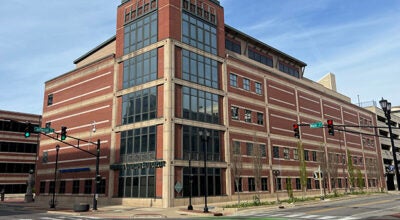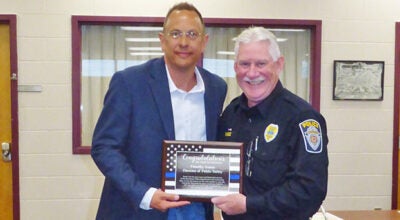County acting on Edwardsburg corridor tax capture on Jan. 7
Published 10:15 am Monday, December 21, 2009
By JOHN EBY
Dowagiac Daily News
CASSOPOLIS – Cass County Board of Commissioners Dec. 17 directed its civil counsel to prepare a tax-sharing agreement with the Uptown Corridor Improvement Authority, the Village of Edwardsburg and Ontwa Township for action at its first 2010 meeting at 7 p.m. Jan. 7.
At the same time, the county board, on a separate motion by Commissioner David Taylor, D-Edwardsburg, indefinitely postponed the capture of county taxes by the Uptown Corridor Improvement Authority.
The recommendation for a tax-sharing agreement came from the Ad Hoc Committee to Consider Tax Capture by the Uptown Corridor Improvement Authority, which met Nov. 30.
Based on projected district growth, the Edwardsburg authority estimates capturing $261,140 of county taxes over 20 years.
The recommended tax-sharing agreement would permit the capture of Cass County allocated operating millage and only Cass County allocated operating millage on new construction – not inflationary increases on property located within the Uptown Corridor Improvement Authority District adopted July 13, 2009, and not any increase in the size of the district unless expressly approved later by the Board of Commissioners.
A second part of the recommendation stipulates that captured tax only be used for certain public infrastructure projects “and none others”: streetscape, $5.36 million, 2013-2030; water main replacement, $1.09 million, 2010-2030; and intersection enhancements, $220,000, 2013.
Third, the Village of Edwardsburg and Ontwa Township agree to the capture and expenditure of their operating property tax revenues for the same period of time during which the county tax revenues are being captured and expended in the district.
Failure to do so would “immediately” end the tax-sharing agreement.
Ontwa Township Supervisor John Brielmaier and Edwardsburg Village President James Robinson attended Thursday night’s county commission meeting.
Fourth, if tax revenue generates faster than anticipated due to growth within the district exceeding initial projections, the additional revenue may be used to decrease or call any bonds or other debt obligations related to the projects previously listed in proportion with funds from other taxing jurisdictions.
The county board on March 19 adopted a tax-sharing agreements policy.
Chairman Robert Wagel, R-Wayne Township, Nov. 19 appointed the ad hoc committee chaired by Edwardsburg Commissioner Carl Higley Sr. and also including Commissioners Taylor, Ed Goodman of Silver Creek Township, Charlie Arnold of Cassopolis and E. Clark Cobb of Dowagiac.
Cobb was absent from the meeting, which was also attended by Taylor’s wife, Mary Ann Crete, and Sandy Gower, county grants and projects manager.
The first thing the panel did, according to its minutes, was to review Edwardsburg’s Tax-Increment Financing (TIF) plan, which under P.A. 280 of 2005 lets cities, villages and townships form authorities to: correct and prevent deterioration in business districts; encourage historic preservation; authorize acquisition and disposal of real property; create and implement development plans; and promote economic development.
The Corridor Improvement Authority, or CIA, states it will only capture increased taxable valuation from new investments and will not touch current taxable value or inflationary valuation so, in theory, no taxes are lost by any taxing entity.
The CIA, by terms of this development and TIF plan, declared that township and county public safety, specifically special voted millages for police/sheriff (including county drug enforcement), fire protection and emergency medical services, are exempt from capture, as are the special voted county library millage and Council on Aging millage.
The CIA’s 20-year plan for 2010 to 2030 aims to: improve Edwardsburg’s overall business climate; deter economic decline and improve the tax base; encourage retention and expansion of employment opportunities; maintain and improve public facilities; provide guidance in land use development; improve appearance, visual amenities, unique features and character of district – similar to Dowagiac’s Grand Old City streetscape makeover of the early 1990s.
The committee also examined its policy on tax-sharing agreements before recommending that the Board of Commissioners enter into an agreement with the CIA.
“We agree that improvements in this district are vital to economic growth in the county and the potential for federal grants (is) there,” according to a recap Goodman wrote. “And follow the direction that the BOC has taken as far as Brownfield Authority, Land Bank, farmland preservation and economic development.”






